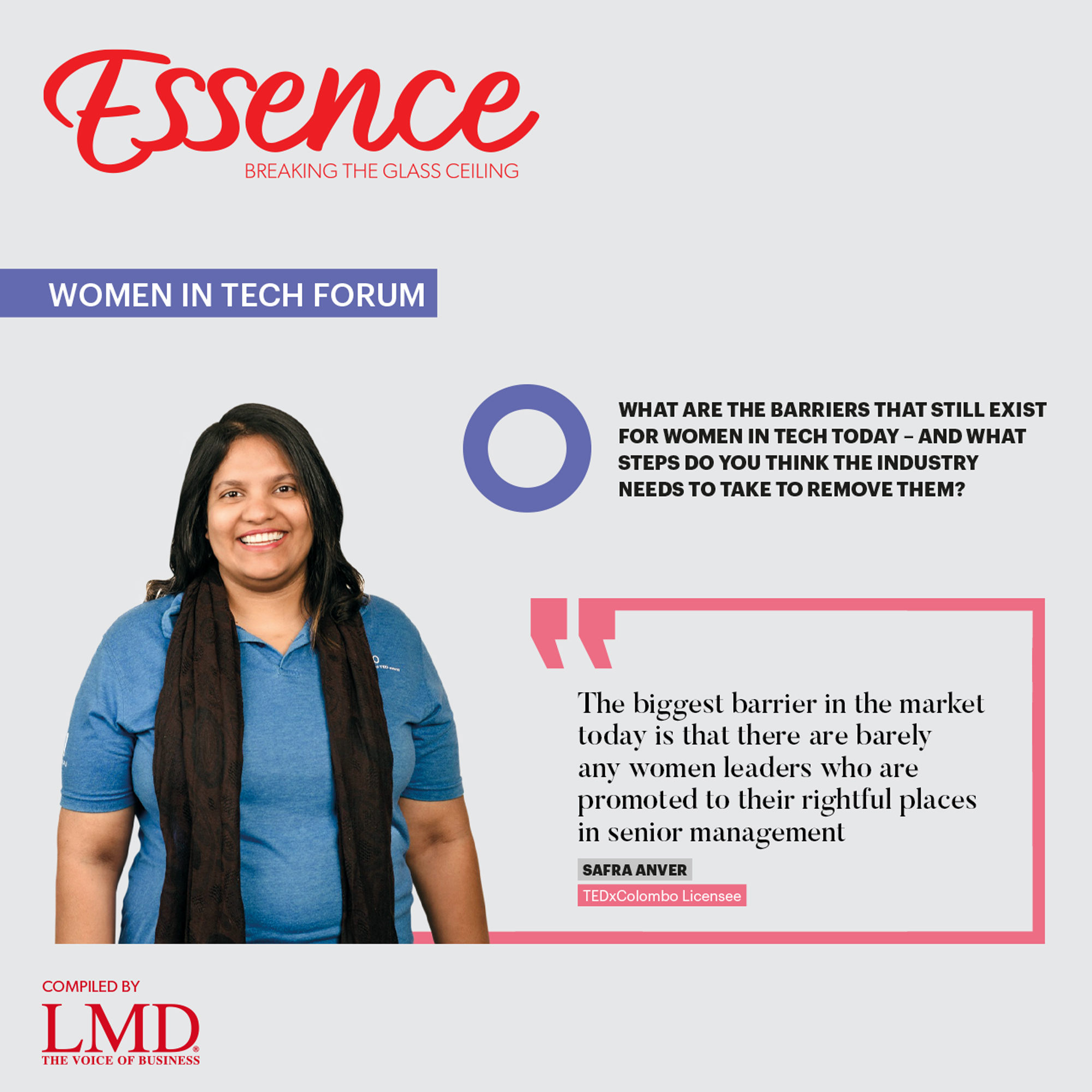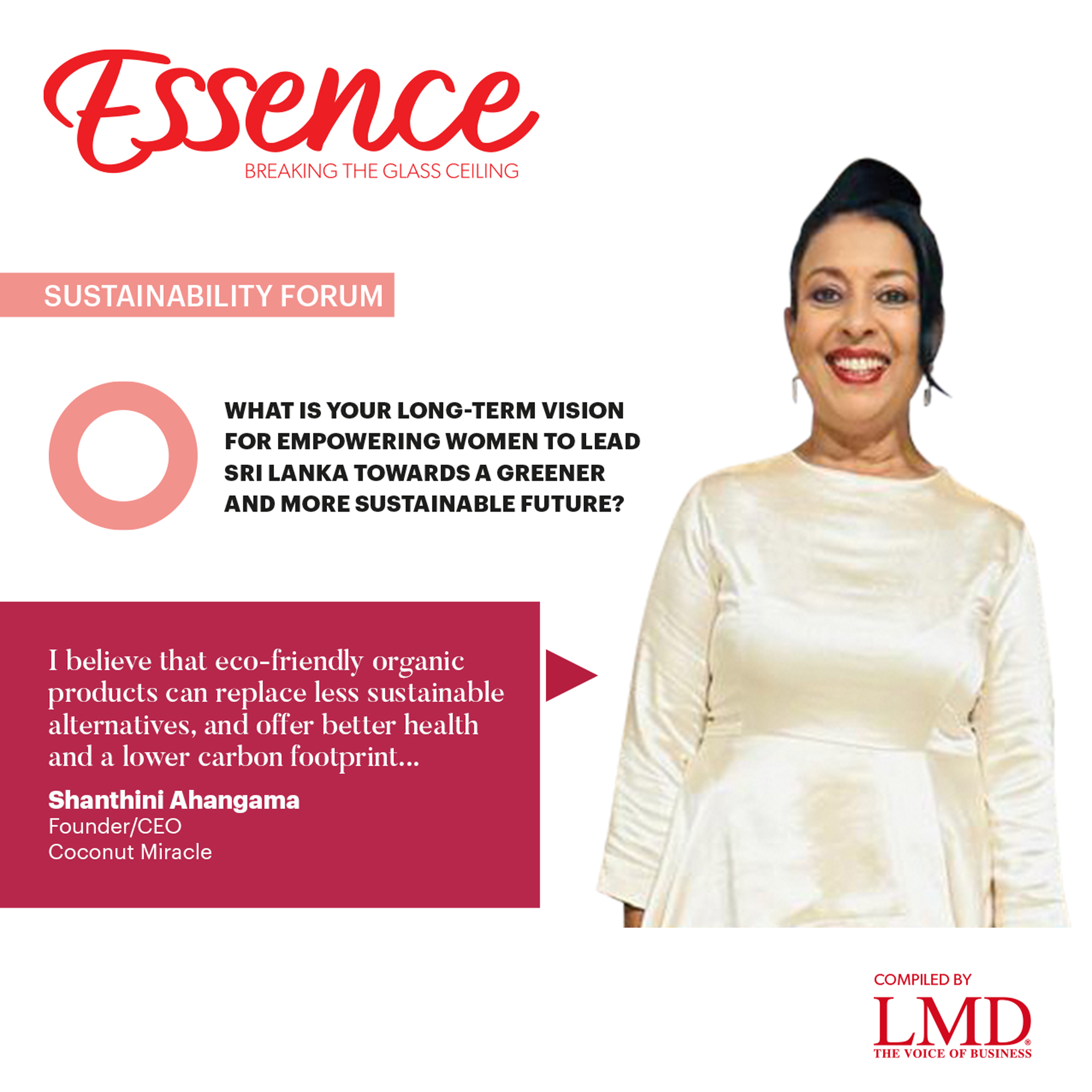LSEG (LONDON STOCK EXCHANGE GROUP)
 Q: What should be done to encourage more women to enter non-conventional fields?
Q: What should be done to encourage more women to enter non-conventional fields?
A: Gender conversations have increased across industries in Sri Lanka and I believe a lot of work has been done to further gender equality.
However, enticing females to enter non-conventional fields requires multiple channels of support – including but not limited to families, the education system and so on – to ensure that their preparation is in line with career objectives.
Organisations such as London Stock Exchange Group (LSEG) offer women an environment that is extremely supportive. When choosing a career, they should be mindful about selecting entities that embrace diversity and inclusivity.
Apart from gender balance, these conversations provide opportunities for us to explore other inclusion and diversity initiatives – such as those for the disabled, people of different sexual orientations, the LGBTQ community and so on. At LSEG, we’re focussed on inclusion and empowering all these categories.
Women bring valuable qualities such as multitasking, nurturing, empathy and natural mentoring to their roles. If these attributes are harnessed strategically, there will be significant benefits for organisations.
Q: In your opinion, are women being supported to maximise their potential?
A: Support is needed at all levels, not only from employers. There’s family and workplace support, as well as from institutions set up to further gender policy.
Biases such as social norms and language are prevalent, and need to be addressed. Gender roles are shifting and having policies in place that support both genders in achieving a work-life balance will have a significant impact on creating gender neutrality.
From an employers’ point of view, organisations need to know that becoming gender neutral is a necessity – and traditional gender roles are evolving.
What is equally important is that businesses need to push to see how female employees and their support systems can be nurtured to achieve real impact, and not take a cookie-cutter approach. This is especially true for women returning to work after childbirth.
Even employees who become empty nesters are potentially valuable workers who can be enticed back to the workforce with supportive policies.
Q: Why is mentorship important in this environment?
A: Mentorship is important to help break existing barriers for women and not only shatter the glass ceiling, but also address emerging themes such as glass cliffs and walls. However, we need mentorship across all stages of an individual’s career for a more enriching and holistic impact.
Q: Are Sri Lankan businesswomen capable of going global?
A: At LSEG, we have seen many women perform global jobs successfully – although what’s perhaps needed is helping familiarise them with cultural differences and recognising that some countries are more advanced in their gender diversity agendas than others.
We also need to support staff in thriving in intricate matrices that are commonplace in global organisations.
Women need to believe in gender neutrality – even if you’re from a country where the level playing field isn’t equal, it is not your gender but what you bring to the table that matters in a global role.
Q: How does LSEG help women serve the business world as valuable members?
A: LSEG has done well to transform the gender balance in a supportive way.
Some initiatives we embarked on – such as crèches and women inspired networks from an architectural perspective to engender equality in tune with life cycles – attracted female employees. The company emotionally connects with staff at every crucial stage in their lives.
While we may have specific policies to attract female employees, their career growth occurs based solely on merit.
We also recognise that women wear multiple hats, and play a range of roles across their corporate and personal lives, and develop policies guided by this realisation.
Q: What is your vision for businesswomen in Sri Lanka?
A: My vision is that there should not be a gender agenda anymore; there should be gender parity. That’s what the future should look like for all Sri Lankans.
While the pace of change can certainly be improved, it is heartening to see the shift in mindset and focus, and vast number of initiatives being introduced to achieve gender neutrality in our society.





